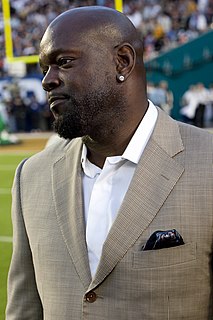A Quote by Carl Sandburg
History is a living horse laughing at a wooden horse. History is a wind blowing where it listeth. History is no sure thing to bet on. History is a box of tricks with a lost key. History is a labyrinth of doors with sliding panels, a book of ciphers with the code in a cave of the Saragossa sea. History says, if it pleases, Excuse me, I beg your pardon, it will never happen again if I can help it.
Related Quotes
London' is a gallery of sensation of impressions. It is a history of London in a thematic rather than a chronological sense with chapters of the history of smells, the history of silence, and the history of light. I have described the book as a labyrinth, and in that sense in complements my description of London itself.
'London' is a gallery of sensation of impressions. It is a history of London in a thematic rather than a chronological sense with chapters of the history of smells, the history of silence, and the history of light. I have described the book as a labyrinth, and in that sense in complements my description of London itself.
There's a lot we should be able to learn from history. And yet history proves that we never do. In fact, the main lesson of history is that we never learn the lessons of history. This makes us look so stupid that few people care to read it. They'd rather not be reminded. Any good history book is mainly just a long list of mistakes, complete with names and dates. It's very embarrassing.
I don’t know much about history, and I wouldn’t give a nickel for all the history in the world. It means nothing to me. History is more or less bunk. It's tradition. We don't want tradition. We want to live in the present and the only history that is worth a tinker's damn is the history we make today.
If, in schools, we keep teaching that history is divided into American history and Chinese history and Russian history and Australian history, we're teaching kids that they are divided into tribes. And we're failing to teach them that we also, as human beings, share problems that we need to work together with.





































